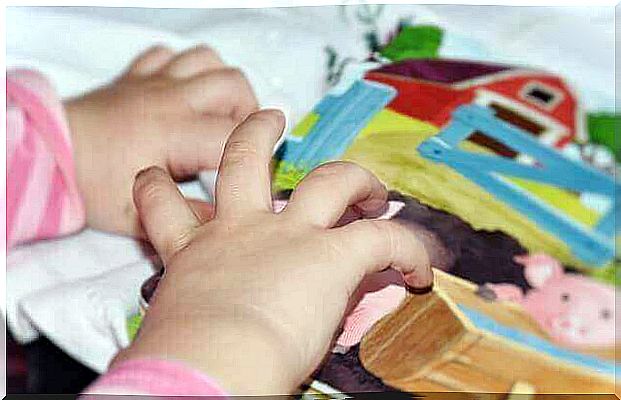6 Exercises That Will Help Children With Language Difficulties

Children with language difficulties should receive help from a specialist and from their parents. That’s the only way to develop and improve over time.
Don’t let a child around you be bullied for his or her language skills.
First of all, it is important to point out that a delay in language development in children does not imply problems in other aspects of their development.
The fact that a child has difficulty speaking does not make him or her more or less intelligent or inept. The problems in children with language difficulties usually only occur during childhood.
Although it may be hard to believe, adolescents and adults with excellent speaking skills may also have had a language impairment when they were little. However, it did not limit their development or prevent them from living completely normal adult lives.
The key to success is knowing how to help children with language difficulties.
What exercises can help children with language difficulties?
1. Tickets

First of all, cards referring to sounds can really help children to pronounce each syllable correctly.
- The best way to do this is to turn this exercise into a game and reward your child when they pronounce each sound correctly.
2. Mirror Exercises
Then mirror exercises are very useful for children who have problems pronouncing words and certain sounds. The mirror helps them learn how to move their mouth correctly and make the sounds for each word.
3. Repetition
Repeating words regularly is one of the most effective exercises to help children with language difficulties.
- However, the reps should be done slowly.
- That way the child can listen to it and hear all the phonemes.
4. Talk to your kids

Parents and other family members must regularly communicate with children who have a language deficiency. This promotes verbal communication. In this way you enable the child to hear, learn and communicate new words correctly.
5. Improve their pronunciation
To improve small children’s speaking skills, it is best to only give them what they ask for when they use the correct word. So don’t do this if they resort to hand gestures. This will motivate your child to find ways to use language to get what they want that way.
6. Read aloud

In addition, reading is a suitable tool to improve the language skills of children. By reading they develop a larger vocabulary. They also learn to structure sentences better and to pronounce words that they find difficult. Stories also help to stimulate their creativity and imagination.
How are language problems diagnosed?
One of the biggest challenges parents face is determining whether their children effectively have language difficulties and whether they need the support of a specialist. However, it is important to emphasize that every child has his or her own variations in the process of speech development.
Some of the situations that can help you identify if a child has language difficulties include:
- When an 18-month-old has not said a single word, is not pointing at objects, and is showing no interest or intent to communicate.
- If a child of 18 months does not understand simple instructions of up to 3 words.
- When a 2 year old only repeats what it hears and you cannot understand what it is saying.
- If a child of 3 years does not form plurals or use pronouns.
- If a 4-year-old child pronounces consonants incorrectly, makes nasal sounds or does not conjugate verbs while speaking.
Recommendations for parents of children with language difficulties
First of all, parents should keep in mind that children learn language through imitation and by listening to the people around them. For that reason, it is important to talk to them a lot. Do this with simple and clear language.
While breastfeeding, it is important to devote time to verbal communication with children. Believe it or not, it is the best time to teach them sign language and the imitation of sounds and gestures.
Also , from the time the children are 6 months old, parents should read to their children daily. Stories with pictures are ideal for stimulating language development.
Take advantage of the time with your child, while taking a bath or changing clothes, to allow them to talk and improve their pronunciation. These are ideal situations for naming objects, garments and parts of the body.
Finally , parents and other people around the children should not laugh at their mistakes. It goes without saying that mocking can cause significant psycho-emotional damage in children with language difficulties.









